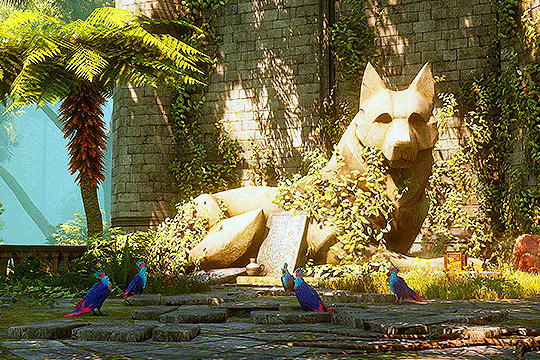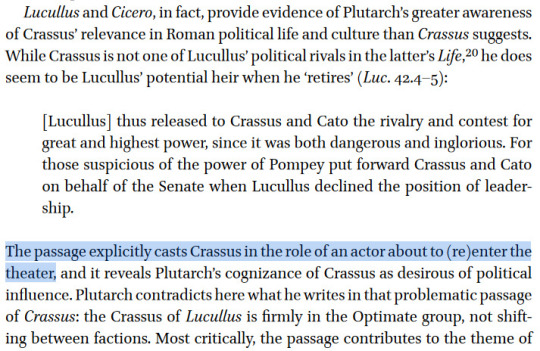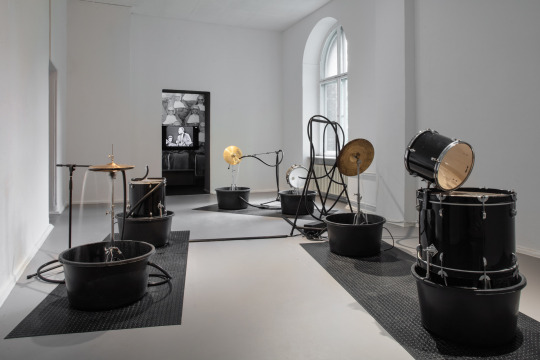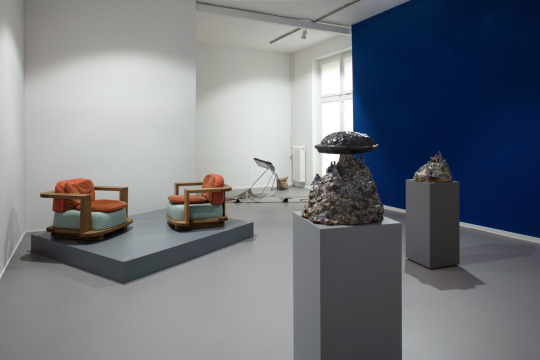#the politics and poetics of transgression
Explore tagged Tumblr posts
Text

— Peter Stallybrass and Allon White, from The Politics and Poetics of Transgression, as quoted in Poison Woman: Figuring Female Transgression in Modern Japanese Culture by Christine L. Marran
#nonfiction#ophelias-post#peter stallybrass#allon white#the politics and poetics of transgression#poison woman: figuring female transgression in modern japanese culture#christine l. marran
0 notes
Text
this last week really has had me thinking a lot about why Loki is popularly conceptualised as a queer figure over any of the other Norse gods. part of me thinks it's not That Deep:
Loki is a more obviously transgressive figure, both in terms of his trickster aspect and in terms of him doing stuff that explicitly crosses gender binaries (see: transforming himself into a mare and giving birth to Sleipnir in this form). He is also often represented as an outsider. All of which are things that lend themselves well to a queer reading.
These same characteristics are also present in his Marvel comics counterpart – a very popular character who, depending on the comic, may be anything between coded or canonically written as queer. Fandom also loves to blur the bounds of marvel Loki and Norse mythology Loki, gleefully playing with the two in a space that is already radically queer, so that one feeds into the other.
Rick Riordan also ran with obviously queer Loki in his Magnus Chase series, further cementing Loki as a queer figure in a fairly mainstream social arena, and attracting more people to Norse mythology with this conception of Loki already in their minds, creating another feedback loop similar to the one mentioned above.
But it's the second part of that question – why Loki over any of the other Norse gods – that I really need to scratch at rn. There is rich evidence for Odin as a queer figure, too, but this isn't something I encounter much outside of scholarly discussion. And again, it may not be that deep, because (1) the arguments purporting Odin's queerness are scholarly, so not something most people would come across, and (2) the evidence given is drawn more from archaeology and sagas, rather than the popular stories that serve as most people's gateway to Norse mythology. E.g, the main argument for Odin as queer is:
Viking society had strict ideas about how social status and gender intersected. Unmanliness was deeply taboo. Laws made later in the viking period and into the medieval tell us that a lot of these taboos were enshrined in law – e.g., wearing clothes of another gender could invite legal repercussions.
Odin practises seid, a kind of ecstatic (i.e., ritual) magic mostly associated with discerning the future.
Seid was, as far as we understand it from archaeology and other sources, something that women practised. A female art, in other words, and not something that men did.
It is therefore interesting that Odin, someone who generally embodies what we consider to be the viking ideal of manhood, uses seid.
(bonus point: Extant descriptions of seid rituals also link it with fertility, and the rituals can have an erotic air; men who practised seid could be called ergi, a serious insult that implied they were the receptive/submissive party in gay sex. This means Odin not only moves beyond the gender binary, but embodies a challenge to norms of sexuality as well)
So unless you're someone who already has this context, Odin's use of seid would just seem like another instance of magic in stories already full of magic. It's also a (somewhat sad imo) fact that modern retellers of Norse mythology tend to draw on the same set of stories, usually those from the Prose Edda or Poetic Edda because these form the neatest & most coherent sense of narrative [1]. That, and mythology retellings are usually aimed at children and young teens, the effect of which is twofold –
stories such as Odin's rape of Rind, which involve him disguising himself as a woman, are unlikely to be included because they're hard to make age-appropriate. This lessens their popularity and public prominence, so people are often unaware of them.
Retellings are heavily coloured by the teller's beliefs and politics[2], and specifically in this case by what they consider appropriate for a child: Anything queer is often considered inherently "adult" and therefore Not child-friendly. However, the story of Thor disguising himself as Freya is ok because it reinforces how men and women are separate and any attempt to cross that binary makes you into a fool; Loki is often written as an evil or even satan-like figure, which makes it acceptable to use him as an example of queerness = deviant and wrong, etc.
Still, I can't help wondering if the popular conception of Odin as the manly warrior god has been a barrier, too. In many online leftist queer spaces these days, manhood has started being seen as the antithesis of queerness; as the gross privileged oppressor gender. (Which is such a hilariously out of touch concept, considering that queer men's masculinity is attacked because of their queerness, and factors such as race, religion and (dis)ability also radically change just how much privilege being a man will grant). There is a real problem with images of gender fluidity, transness and gender non-conformity centering thin, feminine (often white!) and attractive people. Many people's concepts of "non-binary" actually just describe "female presentations but slightly to the left". In that mindset, the bearded guy with a warrior's build, who isn't typically described as attractive, cannot be queer. He is too masculine. Hyper-masculine, even – as if nobody with incredibly masc presentation can possibly be any flavour of queer. It's the entire punchline for why Thor pretending to Freya is so funny (a punchline that is just a transphobic punch for many transfem people).
So yes, I have to ask if this is part of why Loki is usually the only Norse god who gets the queer treatment in pop culture. Because it's easier to create from him a queer figure who is more palatable to modern tastes, whereas Odin still poses a challenge to our concepts of what queerness should be today, even though we have moved on a long way from the social attitudes of the viking age..
[1] all of our records of the Norse myths kind of count as retellings btw and are absolutely shaped by the social context in which they were recorded and the beliefs of the writers. E.g., Snorre represents Odin more favourably while Saxo writes him less favourably. It is very hard to know how people in the viking age thought of the gods and myths and religion.
[2] viking history and Norse mythology (or a flattened, idealistic version of these) have been co-opted by Nazis, neonazis and other groups who idolise the image of white hyper-masculine supremacy that they see in these, too. I think the public perception of viking culture has been recovering but misconceptions about who the vikings were & how they lived still linger, and the impressions of 20th & 21st century bigoted attitudes that were superimposed onto Norse history are still visible.
#...... so i didn't intend to write an essay about this but.#i have THORTS#fragments of essays#norse mythology#special interest tag
20 notes
·
View notes
Text

Our Lady of Radiance
Summary: A small story from my Solavellan writings taking place before the battle of the Arbor Wilds, 9:42 Dragon. The calm before the storm.
Pairing(s): Solas x femme elf Inquisitor Lavellan (My canon OC Orianna Edea Lavellan). Cullen x Unrequited Lavellan.
Warnings: Fluff, angst, some slightly poetic insinuations to smut.
As the Inquisition prepared its siege on Corypheus's forces in the wilds surrounding the ancient temple of Mythal, Inquisitor Orianna Lavellan and her companions had stayed in a local village near its outskirts.
As the sun went down, they prepared for thr battle the coming morning. A great feast had been prepared, but Orianna could not eat knowing that so many of her men would be lost.
She maintained a smile in their presence, not wishing to inspire upon them the doom she felt herself. She had made so many friends, human, dwarfen - even Qunari. Her world had grown so much bigger and now here was a battle to fight for it all.
She locked eyes with Cullen across the tavern, full of tenderness and fear. She could read upon his lips, the chant of light. He was praying for her safety.
On the second floor, Solas leant over the railing, watching her with an unreadable look on his face. Lost in thoughts, she was not sure he even knew she had noticed him.
"A night that might be our last" Dorian mused, having helped himself generously to the wine. "Who might you spend it with? I wonder."
Orianna chuckled, "Stop worrying about me and turn around instead" she gestured, "I see the way Ironbull has been looking at you, have''nt you?"
"-Nonsense." Dorian shook his head and swallowed the remaining wine all at once, "A fine 'Vint and a savage Qunari. Now that is something for the bards to sing about."
Cullen made his way across the tavern at last, and Orianna excused herself with a sigh.
"Inquisitor" he greeted her, and Orianna looked up to see that Solas had left his positioning. "Commander, anything to report?"
There was a pause, "I... yes. There is a matter i'd like to discuss with you, well... in private."
Orianna's eyes distractedly wandered the tavern for Solas's whereabouts, he was no longer anywhere to be seen.
"Sorry. Could you repeat that to me Commander?"
Cullen swallowed nervously, "With the battle ahead of us, I could not let it remain unsaid that I..."
Orianna felt a wave of sadness wash upon her, it was all weighing to much. She was frightened, truth to be told she did not know if she truly stood a chance to defeat Corypheus.
"I care for you Orianna. More than care, in fact." Cullen finally admitted, gazing down at her expetantly.
A single tear fell down her cheek, burning hot. "Cullen..", she whispered.
"My devotion to you, goes far beyond my commanding of your army. It is resolute love, it will stand no matter what."
Orianna's breath hitched as he came nearer, his lips inches of her.
She wanted to press herself forward, but backed away instead into a table.
"Forgive me, Inquisitor. I've.. transgressed." Cullen pulled himself back, but before she could answer, Solas had appeared by his side with an austare visage.
"Commander, if I could have a word with the Inquisitor." He requested politely, and Cullen puzzedly withdrew to leave them be. The bards song filled the tavern, Ironbull laughed at something brawingly.
Before she could say anything, Solas had taken her hand leading her up the stairs after him.
"We were... just talking." Orianna explained, "-And more if the Knight Commander were to have his way." Solas replied snarkily. His hand still gently around hers untill they found themselves in his chamber.
"You're actually jealous?" Orianna finaly braved herself to ask, and Solas turned to her smugly. "Of course I am jealous."
"-To stand in your presence before such a fateful battle. Emmasalin var suledin evanura."
"Ma melava haleni. We would not have made it this far otherwise."
Something glimmered in his eyes, "Vhenan. Vir Insalin."
"I hope so. I can't afford to loose, not now."
Solas smiled, "I believe in you. You are so radiant, you inspire us all."
His lips found hers, and fueled with passion sat her down on his bed.
She fell back, but he did not join her. His head lowered, locked beneath her in awe and in worship.
"-Solas" his name left her lips breathlessly, he could barely keep his hands, or his lips of her, but never let her return the favour.
Whenever she got too dangerously close to convince him otherwise - he would pull away, or otherwise distract her differently.
The sounds of drunken shanty' sung from the tavern downstairs drowned out her cries as she quivered and fell defeated in his bed. He lingered, looking up at her with twinkling clever eyes.
"Mythal enaste." Orianna whispered, "if you keep this up, then."
"-If we survive the coming battle, i'll show you the true extent of my devotion, Vhenan."
Her heart skipped a beat, "I want you Solas, why wait? Why not-"
His lips shut her up, "As much as I'd relish the idea.. we should get some rest. By dawn your army will march and you will need to guide them"
Orianna laid down upon his bed defiantly, "Fine. But i'm not leaving your chambers. I can't sleep without you."
Solas joined her, once again with an unreadable ennui upon his face as he gazed upon her before reaching for - and placing a kiss upon her anchored hand.
"I'll keep the nightmares away."
#solavellan#solas x lavellan#solas × Inquisitor#solavellan fic#dragon age inqusition#dragonage#solas#solas fluff#cullen × inquisitor#dai#da3#veiledvvitchwrites
14 notes
·
View notes
Text
The first time it happened to Hannah, it lasted “just a few seconds.” Without warning, the man she’d met on a dating app and was now having casual sex with grabbed her neck and squeezed gently. Flustered, she swatted his hand away and tried to wipe the gesture from her mind. A year later, it happened again: Another dating-app match wrapped his fingers around her neck. Then this past May, a third time, when a man she’d just started seeing wordlessly placed a hand on her throat while they were hooking up. “Then I said ‘no,’ and he took it off,” she remembers. Each time, Hannah said, she had a basic conversation around sexual desires and preferences with these men before anything physical took place. But the partners never brought up choking outright, let alone asked her permission to do so.
“In all of these scenarios, the men otherwise seemed very sweet, conscientious, and well-informed, and I think that’s why it always comes as such a shock,” Hannah said. “I’m like, ‘What are you doing? Where’s this coming from?’ It’s a pretty violent thing to come out of nowhere, especially from men who otherwise seem so vanilla.”
What does it mean, then, that this “pretty violent thing,” an out-of-nowhere chokehold during sex, is happening in the post–Me Too age of consent? Today’s straight, liberal men are assumed to be considerably more interested in centering women’s pleasure and safety — so what gives? For one, panicked reports of an anecdotal “rise in choking” during sex have been circulating online for years, growing in frequency since 2019 and often offering up the middling explanation that young people have simply picked up the habit from porn. This year both Business Insider and the New York Times warned of the “trend” among Gen Z and teenagers alike. And while choking is not a particularly transgressive kink — it’s not unheard of for women to enjoy, as psychotherapist Esther Perel puts it in Mating in Captivity, the “politically incorrect … poetics of sex” — these particular instances serve as evidence of something sex-positive feminists had hoped would lessen with time: the unrelenting dissatisfaction of casual sex.
Generations of us have been there. Nearly a decade ago, New York’s Rebecca Traister investigated what she labeled “male sexual entitlement,” the tolerated if not expected discomfort of heterosexual sex. And as sex writer Nona Willis Aronowitz observed in her 2022 memoir, Bad Sex: “Sex has never been more normalized, feminism has never been more popular, romantic relationships have never been more malleable — yet we still haven’t transcended the binds that make sex and love go bad.” Just last month, new research reported in the New York Times confirmed the obvious: The orgasm gap for straight women still persists.
But while the threat of a bad time has always been part of the packaged deal of sleeping with a stranger, those of us aspiring to operate as sexually free agents, ever the optimists, had hoped that with age and education, the quality of casual hookups would improve. Instead, the feeling of despair among young women engaging in casual sex has reached a fever pitch. Just take a scroll through TikTok for proof. The individuals I spoke to (most of whom, like Hannah, requested anonymity for the sake of their privacy) shared sexual encounters that ranged from awkward and annoying to harrowing and traumatic, from unexpected slapping and anal play to a hesitance to wear condoms when asked. The issue isn’t so much that the sex is always outright unenjoyable or ill-intentioned but that consent to casual sex still seems to be operating as a catch-all for anything men only assume women want.
For her part, Hannah doesn’t believe that her sexual partners were acting out of malice. If anything, it seems they were making an attempt at tending to her needs, however misinformed. “But of course, in considering women’s pleasure, the only way that some men can seem to conceive of is strangling,” she added. “It makes me sort of depressed if I really think about it. That instead of asking, ‘Hey, what do you like?’ or ‘Hey, do you like this?,’ they’re just going straight for the throat.”
Other women I spoke to had similarly jarring experiences during recent hookups. Tiana said she’d been slapped in the face on a few different occasions while performing oral sex, a “weird thing to do without consent” even when administered lightly, she says. She noted how common it was for “guys to try to eat or finger my ass without asking first.” Similarly, Ash says lots of anal play happens without her go-ahead — often a finger inserted into her anus in the middle of vaginal sex: “In doggy, it’s always a big ass thumb for some reason.” And much like Tiana, Nicky Josephine, a 33-year-old Brooklyn-based writer, recalled being slapped by a sexual partner without consent, to which she responded by slapping him back.
“I felt it was insulting more than anything,” Josephine said. “I like it as long as it’s not too hard, and it’s discussed beforehand. I was just super mad he didn’t ask or warn. That being said, I kept having sex with him.”
Alyssa, a 31-year-old Brooklynite, describes herself as practiced in BDSM and generally more open to experimenting during casual hookups. (That is, only after boundaries have been discussed.) She’s found that insecurity in beginners can sometimes breed aggression, a textbook sign of overcompensation. “I’m learning that men who have no experience in kink tend to completely overdo it on their first time and just be really, really rough and also not listen,” Alyssa tells me. There are echoes of the same sentiment on Reddit in r/TwoXChromosomes, where users point to the mainstreaming of BDSM as one of the factors producing “ill-informed ‘practitioners’” who don’t understand the negotiation of consent, let alone the practice of aftercare. In January, Alyssa found herself at the hands of one such man in his early 30s.
“I would have been fine with some choking in theory, but it ended up being more of a strangulation that I did not consent to,” she said. “He was shaking me by the neck like in a TV show or true-crime reenactment. It was like he was copying strangling someone as he’d seen in the movies.”
It’s no wonder hordes of young women are opting for celibacy instead. Celebrities like Julia Fox, once positioned as the apex of male desires, have sworn off fucking men altogether. Queer pop star Chappell Roan gave voice to her pleasure-less interactions with men in “Femininomenon” (“lying to your friends about / how he’s such a goddamn good lover … I don’t understand / why can’t any man / hit it like … ”), while former country star Maren Morris divorced her husband, came out as bisexual, and now seems to be taking pleasure in the bliss of sexual discovery: “Sittin’ on the fence / Feels good bеtween my legs.” Meanwhile, online, women are recording TikToks after horrific first dates as they search for solidarity, yearn for real love, and unpack their listlessness toward men. As someone who regularly requests to be choked, this inquiry made me pause to ask whether I really draw pleasure from the act or if I am subconsciously bending to the whims of the men under which I am pinned. Easier to stomach if I get ahead of it and convince myself I wanted it, anyway.
Curious about what exactly compels a man to go for the throat, I turned to Jake, a 28-year-old straight guy who lives in Manhattan and works in tech. He doesn’t often talk “explicitly” about sex when gearing up for a new hookup. Rather, he describes the whole process as a somewhat delicate “dance” that can’t really be taught, composed of subtle hints like “touching on the wrist, or touching on the forearm, or touching on the shoulder when we’re laughing.” When Jake does place a hand on a woman’s neck, he says he’ll either ask outright or gently place it there if it “feels like something [he] should do.” Besides, no one has ever told him they don’t like it.
When I ask why he wouldn’t initiate a conversation beforehand, Jake thinks for a moment. Talking about sex risks “removing the spontaneity of it” or might “feel like a sterilization when you put it into words.” He pauses again before musing that maybe it’s just something he’s seen in movies: that a man should be able to intuit what a woman finds pleasurable and when she wants it. “I understand it could be good to ask,” he adds. “But personally, there’s almost a sheepishness when it comes to discussing sex. I am scared of making an assumption and being wrong.”
Of course, men do talk about sex in other settings. Jake mentioned that both some of his friends and the male comedians, podcasters, and content creators he follows frequently boast about pleasuring women as a means of clout-chasing. “It’s now almost like a sense of pride to make a girl come in my own circle,” Jake said.
So it’s not that men are ignorant of — or worse, don’t care about — women’s pleasure; it’s who benefits from that pleasure that’s up for debate. Take, for example, Andrew Schulz’s bit about squirting (“We know it’s pee, ladies, we’re not stupid … but here’s the thing, we don’t give a fuck because we made you pee”). Or Mike Majlak describing his “process-driven” approach to foreplay on the Rawtalk podcast and his need to “spray in every nickel hooker.”
“This sounds bad,” Jake tells me, “but I think a lot of men are seeing women not necessarily more as people but more as sexual beings who also like sex. Things have changed a lot in the past decade, but I think that the pendulum has swung in a way that’s probably also not healthy.”
While casual sex is a two-way street, several of the women I spoke to expressed regret that they hadn’t been more clear in the midst of a hookup about what they did — and, more importantly, didn’t — like. Maybe they’d issued a curt “no” or pushed away a grazing hand, but they hadn’t articulated why a particular act made them uncomfortable or bothered them, the words caught in their throat. Hannah, for instance, doesn’t think it’s her job to close the systemic knowledge gap around consent and pleasure burdening men. Still, she wonders whether she could’ve stopped the cycle by educating her partners more clearly.
“It’s just another burden. It makes me feel like I’m gonna have to take this on myself,” she explains. “It’s just another responsibility that women have. I’m not doing a lot of work in terms of trying to make sure that they don’t do it again with someone else, but like, I’m exhausted.”
Willis Aronowitz writes of this feeling — of all we stand to lose when we express sexual discomfort: “Even the most sexually confident among us sometimes hesitate to talk about all this, because we don’t want to hurt our partners’ feelings or seem demanding, because we want to appear as horny as we initially advertised ourselves to be, because the length of time it takes us to orgasm will spoil the mood … because too much is at stake, because we’re simply not sure what we want.”
For Samentha Teah, a 25-year-old who lives in Virginia, taking a vow of celibacy seemed the only way to discover what she really wanted out of casual sex. After a particularly irksome on-again, off-again situationship with a man in 2021, she swore off sex, albeit unintentionally. But by February of the following year, Teah began actively identifying as celibate. For nearly a year and a half, they tried to unravel their attachment to penetrative sex and rethink the possibilities of physical connection. She needed to get to know herself “outside the expectations of hookup culture, because hookup culture is dependent on you having no boundaries.” Toward the end of last year, Teah decided they were ready to have sex again. Naturally, the hookup wasn’t great — her male partner repeatedly ignored her requests “to slow down, or to take it easy and be gentle.” “I feel like through sex, I can understand how a relationship is going to go,” Teah said, “And the way that he was with my body, I just didn’t want to interact with him anymore after that.”
While many women have documented the intense disappointment of breaking celibacy for milquetoast men (and renewing their vows immediately after), Teah had a different takeaway. She still engages in casual sex but is now “very, very selective,” prioritizing “fooling around” with men and women she already knows over vaginal intercourse with strangers or dating-app matches. Their new relationship to physical intimacy, they tell me, feels like “true liberation.” “I get to have sex when I feel like it. I get to take breaks when I feel like it. If I don’t like sex, I can walk away from a person. I can stop sex mid-act. I didn’t know that I really, truly could do these things … I was searching for autonomy.” Within herself, at long last, she’s found it.
12 notes
·
View notes
Note
You talked about Crassus not getting his wealth in "traditional" manner, and it made me think of Plutarch taking about how Sulla's wealth was also viewed with suspicion because his father actually left him nothing so becoming wealthy was a subversion of his inheritance. I'm just ... having thoughts.
IT'S SO FUN there's such a specific kind of wound that digs into both of them happening there, Sulla's wealth is a mark of suspicion the way that Crassus' wealth is a permanent stain
it's not to the same degree, but there is something almost thematic about Crassus being brought up in a modest household and Sulla having lived in cheap lodgings (or to continue the almost: the way that there is a specific kind of familial absence in the early narratives of their respective biographies). the ways that they both gained wealth and power taking unconventional turns (whether the suspicion is warranted or not), even by the rapidly unraveling standards of the time.
it's not a perfect comparison!! but in a way it's poetic to me?? recognition in a reflection that doesn't line up so instead it's unbearable and grating. Sulla was the only Roman who could hold Crassus to the floor, and Crassus got up anyway. they both crawled up the Roman political ladder, ruthless in achieving their goals. its the mortifying ordeal of being known enough and not vibing with it.

A Year of One’s Own: Dating the Praetorship of Marcus Crassus, Martin Stone
like, Sulla knew Crassus well enough to know how to hurt him, and boy that sure feels like something.

Plutarch, Crassus, trans. Warner.
ANYWAY, I'm getting off topic. oh my god I have gotten so far off the original topic of this ask.
to wrap it up: something something Sulla keeping the company of actors and such, and this text comparing Crassus to an actor about to enter the stage of politics once more, Sulla's role in freezing Crassus out of the traditional avenues of political power.

A Life in Pieces, Plutarch, Crassus 12.1-16-8, James T Chlup
Many Things Are Weird About The Main Cast Of The Last Generations Of The Roman Republic. lots of subversions and transgressions happening all over the place.
heughghh to finish this off, I've been thinking about this a lot while I write other things, but uhhhh my thoughts are Not Particularly Coherent. I've been reading lately on the Rizal-Bonifacio relationship and what it means to conflict with someone who is partially responsible for making you what you are—

Decimation: Myth, Discipline, and Death in the Roman Republic, Michael J. Taylor
—and it's bleeding into all the other filing cabinets in my mind.
#maybe there's something else in the way Sulla zeroes in on Pompey#who inherited a crime#whose biography has talk of Fortune#like Sulla#Pompey and Crassus raised their respective armies that they led under Sulla in similar ways#it is. a triangle.#horrible terrible triangle#i also think about how Sulla tried to stamp out Caesar and it didn't work so Caesar like. ran Sulla's playbook even better#that's like stepping into someone else's body and saying 'nice try. my turn.'#so the sulla triangle continues anyway???? something like that.#ANYWAY. i am so sorry for this wall of words. I hope uhhhh that it makes sense. i have thoughts about Sulla's wealth#they are Not coherent. unfortunately. thankfully I write comics not academic papers#ask tag
43 notes
·
View notes
Text
Gender transgression, militancy and sexual political violence
This type of violence against women, in a repressive context, is known as sexual political violence.
Feminist historian Francia Jamett (2012) [2] explains that this violence is not yet classified, therefore, it is not recognized as a crime under Chilean legislation. In this way, it was an instrument of state terrorism used against militant and revolutionary women. Lawyer Camila Maturana (2014) maintains that her practice “is used to humiliate the adversary. It is a message of mutilation and castration of the enemy, a battle of men fought in the bodies of women. Rape is used by both sides as a symbolic act, it is used to demoralize the other and, on many occasions, institutionalized through forced prostitution and sexual slavery in the hands of the military” [3] .
In that sense, the feminist of the collective “Women survivors, always resistant”, Beatriz Bataszew (2015), points out that the women who experienced these sexual tortures represented with their ideology and action “a double transgression. On the one hand, they questioned traditional social and political values and, on the other, they broke with the norms that governed the feminine condition that limited them to the private/domestic sphere” [4] .
Therefore, the rebellion of these women evidenced the gender relations of heteropatriarchal society, which meant that the military and repressors launched all their hatred and violence against their bodies and their lives. As Bunster and Taylor put it, “women's bodies – their vaginas, their uteruses, their breasts – linked to female identity as sexual objects, as wives and as mothers, were clear objects of sexual torture” [5] .

Presentation at the former El Morro detention and torture center. Photography by Rayén Traro.
In this way, Mildred Cáceres and Gloria Avilés (2017), from the communications area of the Cultural Center Por la Memoria La Monche, reflect and propose that sexual political violence “was constituted as a permanent and legitimized practice by the military dictatorship, that is, , in a policy against women institutionalized as a disciplinary and control strategy towards women who do not ascribe to its dictatorial and sexist model” [6] . This violence endures behind the walls of silence and intimacy of the former prisoners basically because of the little that has been written about it and, furthermore, because of the few testimonies that exist, although there are many survivors and resisters, a considerable number of them even participate. actively in the current women's and feminist movement, which shows the continuum and transformations of their political trajectories.
The imaginaries and stories of the protagonists: a look against oblivion from artistic practices
The production was prepared by a group of women former political prisoners of the dictatorship, horizontally twinned with young women artists, who came together in the creation of a collective dramaturgy and staging, which, from my perspective as a feminist, not only made visible and denounced the sexual political violence that the revolutionary women of Gran Concepción experienced, but also presented, through an aesthetic and poetic proposal, a problematization and reflection on the imaginaries and life projects of the women promoted by the militant culture of the left and revolutionary of the Popular Unity (UP) [7] .
The montage recounts, from documentary and testimonial language, the militant life they had as girls, young people and adults. In some way, we learned about fragments of the types of roles they played in their political practice, the interests and concerns of social history, and the political projects they had in revolutionary and counterrevolutionary contexts. These were closely related to those profiles and actions that strengthened the social and care fabrics of the various student, union and population communities where the organic insertion of these fighters and their peers was developed, in a Leninist key, before and during the dictatorship.
The dramaturgy was configured from living texts orchestrated by multiple voices that narrated from the individual to the collective and even generational. Through the crossing of the testimonies, archives and repertoires of its protagonists, from a perspective that replaces that of traditional political historiography with one focused on the daily militant experience among women, an artistic and political representation with meanings of protest was articulated. and contempt against the views that point out that opposition and political women did not have their own history within recent social history.

Artistic installation by Darling Maredi Andia Almendra in the former El Morro detention and torture center, Talcahuano. Photography by Rayén Traro.
Although the common thread of the montage linearly portrays one of the most horrifying, painful and traumatic experiences that a leftist revolutionary can live, it was possible to observe images and knowledge that expressed another of the meanings that, personally, moved me the most: the interweaving of historical experience with the current struggle of women. I interpreted this as an honest invitation to carry out an exercise in understanding how these women have reconstructed their biographies as political subjects and how they recognize themselves around the transformation of this neoliberal and patriarchal system - an authoritarian political, economic and cultural model, as permanently mentioned it - that never fell and whose crimes against humanity continue unpunished.
In that sense, the work offers us a range of possibilities to know how these militants experienced pain and treated trauma, in addition to exposing the updated political position to which they ascribe today; position that breaks with the idea of the victim and replaces it with that of the subversive and resistant, legitimizing experiences and imaginaries as a version with feminist logic that recovers and protects the memories of the dictatorship in Chile - especially those of Gran Concepción - from a dissident path to the hegemonic ones.
8 notes
·
View notes
Text
Desire, in its narrative form, is generated by distance. According to one ancient etymology (false, it hardly need be said), desire (pothos) pertains not to that which is present, but to that which is elsewhere (allothi pou) and distant (apontos). We might think of Musaeus’s Hero and Leander, with its story of the separation of the two young lovers by the Hellespont. That narrow strait is the physical materialisation of the narrative requirement for distance. But such boundaries are not just physical: they are symbolic too. In Hero and Leander and Achilles’s Leucippe and Clitophon alike, the young female lover is kept separate from others by parental sequestering. It is a social norm, not brute geography, that interposes the gap between the inception and the consummation of desire. In Chariton’s Callirhoe, the fathers of the two lovers are political enemies, in the manner of Romeo and Juliet. In such cases there is no physical barrier, but there are barriers all the same.
[…] In erotic narratives, desire is usually dangerously dislocated: the Greeks spoke of an atopos pothos, an ‘out-of-place yearning.’ What is distinctive about novels, I submit, is that they resist succumbing to the temptation simply to judge and condemn this ‘dirty’ love, and offer instead something more complex, empathic and challenging. In a novel, a figure like the Iliad’s Helen would become a more rounded character than Homer’s ‘cold, evil-contriving dog’ whose union with Paris was responsible for the suffering of male warriors. Certainly, the poetic tradition could offer a more positive, even celebratory account of transgressive passions. Already in Sappho’s lyrics we find a Helen endowed with agency, will and purpose; her pursuit of her own desires is presented as an exemplum for the poet to follow, and thus implicitly legitimised according to the poem’s moral scheme. But the female poet is also aware of how outrageous she is being, and the male lyric tradition quickly reverts to aggressive condemnation of Helen. In tragedy, those experiencing transgressive desires are given room to express themselves, often with sensitivity (e.g., Phaedra in Euripides’s Hippolytus) but all the same, transgressive desires inevitably lead to disastrous outcomes.
— Tim Whitmarsh, “Dirty Love: The Genealogy of the Ancient Greek Novel” (2018)
4 notes
·
View notes
Text

This project is a feminist study of the idiosyncratic oeuvre of Kathy Acker and how her unique art and politics, located at the explosive intersection of punk, postmodernism, and feminism, critiques and exemplifies late twentieth-century capitalism. There is no female or feminist writer like Kathy Acker (and probably no male either). Her body of work—nine novels, novellas, essays, reviews, poetry, and film scripts, published in a period spanning the 1970s to the mid 1990s—is the most developed body of contemporary feminist postmodernist work and of the punk aesthetic in a literary form. Some 20 years after her death, Kathy Acker: Punk Writer gives a detailed and comprehensive analysis of how Acker melds the philosophy and poetics of the European avant-garde with the vernacular and ethos of her punk subculture to voice an idiosyncratic feminist radical politics in literary form: a punk feminism. With its aesthetics of shock, transgression, parody, Debordian détournement, caricature, and montage, her oeuvre reimagines the fin-de-siècle United States as a schlock horror film for her punk girl protagonist: Acker’s cipher for herself and other rebellious and nonconformist women.
Kathy Acker - Punk Writer (Edition 1) : Free Download, Borrow, and Streaming : Internet Archive
5 notes
·
View notes
Text
Carlos Leppe - Perchero (coat hangers), 1975 and El Perchero (the clothes rack)



https://www.museoreinasofia.es/en/collection/artwork/perchero-clothes-rack
The early years of Augusto Pinochet’s dictatorship of the 1970s generated some of the most militant artistic demonstrations in Latin American conceptual art. Carlos Leppe used the reference points of Conceptualism, such as its hermeticism and precariousness to demonstrate the absolute breakdown of human rights in an extremely repressive dictatorship.
based on a complex analysis of the contemporary situation using the body and theatrical settings.
The body used as a support for artistic expression was seen to be a powerful medium for political condemnation. In 1975 he created El perchero (The Clothes Rack), the original mounting of which consisted of three folded life-size photographs hung on a structure with three coat-hangers. The photographs depicted the artist’s body dressed in women’s clothing, exposing and concealing symbolically loaded body parts. The piece as a whole dared to confront the question of the representation of living flesh, in a clear reference to tortures used by the Chilean military regime.
Carlos Leppe’s art practice is political in its poetic tone and poetic in its political tone
4 notes
·
View notes
Text
Dumplings [餃子] (2004)

At what specific degree of dermal tautness does the patriarchal hegemony deem the face of a Woman of a Certain Age (read: anything over 24.5 years or something, I dunno) to be acceptable or even beautiful? The burden of beauty in the world of Dumplings and beyond falls on women. Nothing Mrs Li can do will draw the attention of her husband for more than a passing moment; he’s too busy fucking other, younger women. And yet she feels a nigh-addictive drive to pursue that standard which will maintain his attention. This fixation pushes her into the arms of a woman whose appearance belies her years, all thanks to one secret (doctors hate her!). Unlike other films of this stripe, the essential ingredient of Aunt Mei’s dumplings is revealed almost immediately. In not beating around the bush, the film both comments slyly on the One-child policy of Mainland China and draws sharp socio-political lines. Mrs Li is a victim of a sexist double-standard, but her position of wealth and privilege allows her to literally prey on those less fortunate. The teenager brought to Aunt Mei as a last resort dies as a direct result of her mother’s desperation, her father’s monstrosity, Mrs Li’s obsession, and Aunt Mei’s greed. An entire lower class family obliterated for a few moments of fishy beauty. Even beyond its concept, this is horror, after all, so the film leans into crunchy, amped-up Foley in all of the eating scenes, emphasizing the transgression.
If a mirror is a symbol of beauty associated with femininity, Dumplings makes a meal of the motif. Aunt Mei’s flat is littered with cameo mirrors, allowing for moments of doubling and self-reflection as Mrs Li hovers at the threshold of this path of transgression. After she makes her final commitment beyond the pale we see her in frame reflected with Aunt Mei, two women against the grain. At her nadir, Mrs Li is presented with another sort of reflection of herself, seeing a rebroadcast of herself as a young, blossoming television star just as she despairs at the side-effects of her latest treatment. In this moment, it’s possible to see someone as amoral but also to understand on some level why they’re doing what they do through the lens of horror. The final frames bring this arc to a poetic close, Mrs Li doubled by the blade of the cleaver she holds, ready to make the first cut of her next treatment.
THE RULES
SIP
Someone says 'dumpling'.
Anyone eats a dumpling.
Reflection in a wall mirror.
Amazing trouser prints.
BIG DRINK
The tiffin tin appears in a scene.
Aunt Mei wants to sing for someone.
#drinking games#dumplings#fruit chan#miriam yeung#bai ling#hong kong cinema#horror#horror & thriller
5 notes
·
View notes
Text
anyway i know i'm not saying anything new but i rly wish we lived in a culture with a greater emphasis on like... critical reading and poetic/metaphoric literacy?
idk i just don't think that every time i say lolita is one of my favorite books i should have to add the caveat of like "but i don't condone ____!" or have to clarify that i'm talking about metaphors when i say incest can be a really important theme worth exploring.
it's not just that it's annoying on a personal level but also that it's reductive on the level of a literary politic that uses taboo to deconstruct or reimagine power in really significant ways!
transgression is a tool! discomfort is a framework! roll in it, writhe in it, bask in its light!
4 notes
·
View notes
Text
How Every Sign Will Be Affected by Saturn in Pisces

According to the top astrologer in Kolkata, Pisces is a water sign that can change and represents tenderness and sensitivity. By nature, Saturn is the opposite planet. As a result, the energy of these two is opposed when Saturn is in Pisces. What we end up with are challenges in setting limits and establishing order. Fantasy and reality blend, feelings and intuition trump logic, and spirituality becomes our obsession.
Aries:It's crucial to understand that you have served your time for the offence, even though you might want to punish yourself for past transgressions. Take a moment to yourself. Nobody is flawless, not even yourself.
Taurus:Your social circle is getting smaller as you discover who your real friends are. You're fine, even though you were used to hanging out with large groups of people, arguing that having a smaller social circle with close friends is preferable to be surrounded by acquaintances who are only there to make fake small talk.
Gemini:Right now, your coworkers more than your job may be the reason your career feels complicated. To keep your working relationship positive and moving forward, try to find a compromise that works for both of you.
Cancer: During Saturn's transit in Pisces, you might find yourself more likely to stand on your soapbox and lecture others. As long as you allow others to voice their opinions to feel as though they are important, there is nothing wrong with expressing your thoughts and feelings.
Leo:It's always crucial to set boundaries, particularly in relationships. Verify that you are not going beyond the boundaries that other people have set. In a similar vein, request the room necessary for you to make decisions that you are proud of and that you own.

Virgo:Giving and taking are fundamental to relationships. To make sure that no one feels taken advantage of, it's critical to preserve that dynamic at all times. Give people your undivided love and attention just because you want to, without anticipating anything in return, and then watch what happens, as predicted by the Best Astrologer in Kolkata.
Libra:Because your daily routine needs structure, this transit will make your chaotic schedule right. As a creature of comfort, routine adherence is crucial. This will facilitate regaining your rhythm and help you break free from your current state of funk.
Scorpio:You're dating, loving, and crushing on people with a more sophisticated attitude. You should have serious conversations about politics and other issues that affect everyone, not just you and your close friends, rather than flirting and trying to be cheeky.
Sagittarius:Since your heart is in your home, Sagittarius, you should take special care of your family members right now. You never know when they might need your assistance, so be ready to help them out when they do.
Capricorn:You are the only one who truly understands how hurtful words can be when used to convey bitter feelings. Thus, to build kinder and better relationships, you will spend the next 2.5 years holding back the harsh words and substituting them with flowery and poetic messages.
Aquarius:Since your bank account feels light, you might be worrying about money. You've been spending carelessly for the past few years, and now it's all catching up with you.
Pisces: According to the famous astrologer in Kolkata, the stakes and pressure may seem high at the moment because you are pushing yourself to be number one in all you do. Take a moment to reward yourself for your hard work and accomplishments at work rather than criticising yourself.

#best astrologer in world#top astrologer in kolkata#astrologer in kolkata#best astrologer india#famous astrologer
0 notes
Text
Randvi and Soma 100% get together first, and bond over how much they Want Eivor.
Randvi is clever, and she knows what she wants. She is the strategist, the tactician. The guiding eye that aims the shot. While I'm firmly in the camp that Randvi was in love with Eivor long before they left for England, meeting Soma muddies the waters. Eivor was easy to love, with her loyalty and bravery, infatuation was immediate and universal. But it is her gentleness that Randvi loves. It is much the same that brings her to Soma. Both her warriors are honorable and passionate and would sacrifice anything for their people, but it is their loving nature that wraps Randvi into a sense of safety in their arms.
Soma meets Eivor first, and very quickly falls for her. Where she had to earn the loyalty of each of her advisors, Eivor walks into her life with every intention of setting up shop and staying. As guarded and emotionally unavailable Soma is, someone trustworthy and determined to forge a lifelong friendship falls into her life, and it is impossible not to become swept into Eivor's orbit. Soma had never had anything more than passing flings, with an indomitable drive to prove herself, there was never any room for anything else. But Eivor is different. She does not need to be impressed, and instead works for Soma's affection and trust. She is passionate but not fanatic like Galin, poetic and ambitious but not jealous like Lif, proud and loyal but not opportunistic like Birna. She is everything that Soma admires and loves in her family, and their bond (to Soma) is red-hot even if Eivor cannot feel the burning in Soma's heart.
When Soma meets Randvi, she is devastated to see Eivor's adoration towards her. It is clearer than a mountain spring well that Eivor loves Randvi. But slowly, as she grows closer to her, Soma discovers that Randvi is as sharp and brilliant as Eivor said. In Randvi, Soma sees herself in a new light. Those traits of hers that have closed her off to the advances of many eligible suitors, including Birna, are suddenly desirable and lovely. The same traits that Eivor loves Randvi for, Soma finds just as intoxicating. In Randvi, she finds not just stability and an intellectual match, but a reflection of herself that she can't help but admire. When the fire in the war room dwindles late at night, Soma and Randvi have long abandoned their maps and pawns and ledgers to discuss philosophy and politics. Even late into the night, when the intoxication of exhaustion loosens their lips, their minds stray from wanting Eivor when they cannot have her, to themselves and each other.
Even still, as Soma and Randvi navigate a newfound infatuation with each other, they feel the absence of Eivor aching in their chests. It is a fraught few weeks as Soma and Randvi navigate passion for each other, while both still harbor a deep connection with the warrior that brought them together. It is Soma who breaks first, more hurt by Randvi's pining and guilty of her own, that she lashes out at Randvi. And as true as her words are, Randvi is always the voice of reason: infidelity cannot happen solely in the mind. And even then, Randvi can see just as clearly, with a lance that pierces her lungs every time the three of them are together, that Soma adores Eivor in much the same way Randvi does. Eivor is gentle with Soma, it's her way, and that gentleness had long ago brought Randvi to her knees. Could she fault her lover for the same transgressions she was guilty of herself?
So it's with a heavy heart that Soma recognizes the truth of her accusations, accusations she threw at Randvi simply to distract from her own desires. When Randvi shuts her down, she is sure she's lost it all. But Randvi softens, and pulls her arms closer, if there is anyone who understands the unrequited desire to love Eivor, she would be that person. Gods, she wanted Eivor. But to walk away from Soma, or worse, to watch Soma walk away instead, would break Randvi. Not even Eivor could repair and replace the pieces of her heart that Soma would always carry.
It's purely by accident that brings Eivor finally to their bed. It takes a while, but eventually the three of them are able to mend the hurt and heartbreak they brought upon themselves. It had never occurred to Soma and Randvi that their feelings could ever possibly be reciprocated. But while Randvi and Soma had each other, Eivor must navigate her love alone. It will take time, I think, but Eivor will eventually grow comfortable and secure knowing that she was never an afterthought to Soma and Randvi. She was crucial to them. Eivor didn't just introduce Soma and Randvi. She united the three of them. friends, allies, lovers, something no word could ever describe.
Together, I suppose, is the word I'm looking for. There's nothing else they could ever want.
CANT believe it took me until today to realize yeah Eivor x Randvi x Kassandra is great and all but consider: Eivor x Randvi x SOMA
#eivor varinsdóttir#ac valhalla#eivor x randvi#randivor#randvi#randvi x soma#eivor x soma#eivor x soma x randvi#i am 100% turning this into a fic eventually#maybe not a full novel#id probably aim for novella length
55 notes
·
View notes
Note
Ok but what's your favourite parts about shadowgast, why does it scratch all the right places? 👀
It’sabouttheyearning.jpg
There’s so much to love. Clearly I have a TYPE, as my experience with choosing favorites went about like
Friend who got me to watch CR: So who’s your favorite so far?
Me: Shit how do I choose? They’re all great. Toss-up between Molly, Caleb, and Beau I think?
Caleb: *reveals his Tragic Backstory*
Me: never mind, that one, it’s that one
So I guess it was inevitable. Honestly? The BEST thing about it? Is that the talent behind Caleb ACTUALLY, PERSONALLY CONFIRMED THE ATTRACTION IS REAL. Multiple times. Not just in “nod nod wink wink say no more” encouragement to the fandom out of appreciation for his character’s popularity, but STRAIGHT UP SAID THIS MAN IS BISEXUAL AND ATTRACTED TO ESSEK IN MULTIPLE WAYS
Which means that if Liam ever nuts up there is a very real chance of it becoming canon. Like, not tinhatting, but an actual, real chance, and even if they never hook up, it is fucking canon that Caleb is into Essek. As badly as I’ve been burned by SPN and the MCU, and even to an extent Hannibal—gods know I love Bryan Fuller & co but as a frustrated queer man I’m allowed to be a little grumbly over (paraphrased) “they’re in love, it’s a love story, but not ~PHYSICALLY~”—my interest in Shadowgast was tentative at best until I reached that particular Talks Machina. And now they’re both escalating, manhandling each other, favoring each other, showing off for each other, like...this shit is real, and I’m reeling from it. This isn’t something queer people normally get to HAVE in media, especially queer men. But CR? CR puts blatant Shadowgast fanart on their official website and displays it in their fucking streams. I would say I have no words, but... *gestures at this post* ...clearly I fucking do, lol.
Normally we’re relegated to smirking subtext or established background couples that hold hands in the suburbs. There are countless stories in media of men who are, in subtext, very clearly bonded romantically, but textually “””really good friends””” or “””like brothers”””. Despite all our progress since the Hays Code, men in media by and large don’t get to have their attraction to each other treated as an explicit thing with real potential to be explored as a romance. They just don’t. It’s still too taboo. So for Liam to just casually say “Yes, the attraction is real” (again, paraphrased but only in terms of word order) is fucking monumental. So it gives me hope, something I’ve been short on for most of my life and that has not served me well in the past.
It has certainly helped to watch the rest of the cast’s /fucking faces/ during their Moments and know they ship it as hard as anyone.
But that’s all extradiegetic. Diegetically, I’m a sucker for narrative parallels, and Caleb has made the parallels of their trajectories explicit. I sat up and went 👀 the first time Caleb went out of his way to touch Essek, and they’ve been in orbit with each other ever since. So there’s an element of that “shared life experience” thing I love so much in Stucky: they understand each other in a way that no one else understands either of them; they mirror each other’s ambitions and transgressions, each other’s strengths and flaws. They have so much to offer each other even aside from their similarities as grown “gifted children” with tragic crimes in their pasts: an exchange of experience in culture and class; their forward-thinking imaginations; their loyalty, previously sworn to no one; their resources, both the disparate and dirty and desperate from Caleb, and the refined and academic and political from Essek; their power, in terms of magic and intellect and sheer will (power exchange joke goes here).
They are the sun and the moon and I ache for an eclipse.
All this, and the fact that they should by rights hate each other, but both are apostates in their own way; both long for change and are willing to break reality to achieve it. They could bring out the best in each other or the very worst. They are a volatile mix and I want to see what new molecule will come of their atoms bonding, as well as the explosive chemical reaction when it forms. They are a perfect match that should have been perfect nemeses, had things played out just a little different for them both. What’s more beautiful than that? What’s more powerful than that? To see these two men who are nuclear reactors, who are stars, spiral together through the dark, on track to crash together and leave nebulae in their wake. There is so much potential energy generated when they sway close and every week we come closer to it becoming kinetic.
I should temper my expectations. I’m not a prognosticator, as my history has clearly fucking shown time and again; I can’t know that it’s a WHEN and not an IF. But the odds, man. They’re the best goddamn odds I’ve ever had.
Now here at the end of this I should disclaim that I have drunk half a bottle of $4 strawberry wine so please excuse me drunkenly waxing poetic like the pretentious piece of shit I am. Thank you and good night
217 notes
·
View notes
Quote
Disgust always bears the imprint of desire.
Peter Stallybrass and Allon White, The Politics and Poetics of Transgression
4 notes
·
View notes
Photo










Wild Frictions
The Politics and Poetics of Interruption
June 26 – August 22, 2021
Wild Frictions: The Politics and Poetics of Interruption explores minor disruptions, surprising and unforeseen interventions, delays and repetitions and their potential to show alternative ways of existing and behaving. Rather than looking to heroic eloquent figures or stimulating united/ collective moments, this exhibition locates emancipation in subtle idiosyncratic forms of mischief-making, in the playful slippages or in the spaces in between sounds and syllables.
“…wildness as a provocation, a retreat from the conventional, an affront to the normal and the expected, and an environmental condition.” (Jack Halberstam, Wild Things: The Disorder of Desire , 2020, p. 28)
The subversive artistic approaches/ actions/ acts simultaneously evoke feelings of alienation and loss of control, which in turn reflect anxieties and tensions associated with the pandemic and social uprisings of the past and this year – the personal gridlock, the numerous protests and repeated quarantines, as well as economic and social pauses. Through text, video, sound, installation, and performance, the artists of Wild Frictions employ strategies of interruption and blockage/ obstruction/ resistance to critique universal narratives, systems of oppression, and unconscious structural routines that characterize our everyday lives.
„Gesucht: die Lücke im Ablauf, das Andre in der Wiederkehr des Gleichen, das Stottern im sprachlosen Text, das Loch in der Ewigkeit, der vielleicht erlösende Fehler.“ (Heiner Müller, Shakespeare‘s Factory 1 , 1985, S. 13)
These disruptive artistic gestures may create discomfort or confusion, but simultaneously/ and therefore contain an immense potential: the ability to subvert and gently corrupt, to create cracks at the level of meaning and to open up new realities. Wild Frictions invites a poetic analysis and possible transgression of the boundaries that form universal modes of being, speaking and knowing today.
“When the facts change, I change my mind.” (Nora Turato, from the series “I’m on the verge of TOTAL VICTORY”, 2021)
Participating artists: Félicia Atkinson, Trisha Baga, Cameron Downey, Anna Ehrenstein, Nikita Gale, keyon gaskin, Birgit Hein, Steffani Jemison, Kahlil Joseph, Ani Kasten, Christine Sun Kim, Janette Laverrière, Ouecha, Laure Prouvost, Lili Reynaud-Dewar, Jimmy Robert, Pilvi Takala, Banu Çiçek Tülü, Nora Turato
Curators: Sandra Teitge and Amara Antilla Research and text editing: Linnéa Meiners, Jorinde Splettstößer Project management: Sofia Pfister Technical production: Kristoffer Holmelund Assistance: Dani Hasrouni, Markus Hemann Design: Louise Borinski
Kunstraum Kreuzberg/ Bethanien is an institution of the Friedrichshain-Kreuzberg District Council. Director: Stéphane Bauer
–The project is funded by the Capital Cultural Fund and the Senate Department for Culture and Europe: the Fund for Municipal Galleries, and the Fund for Exhibition Payments for Visual Artists. –Wild Frictions is produced in collaboration with the Contemporary Arts Center Cincinnati, where an iteration of the exhibition is on view April 9-September 19, 2021.
8 notes
·
View notes